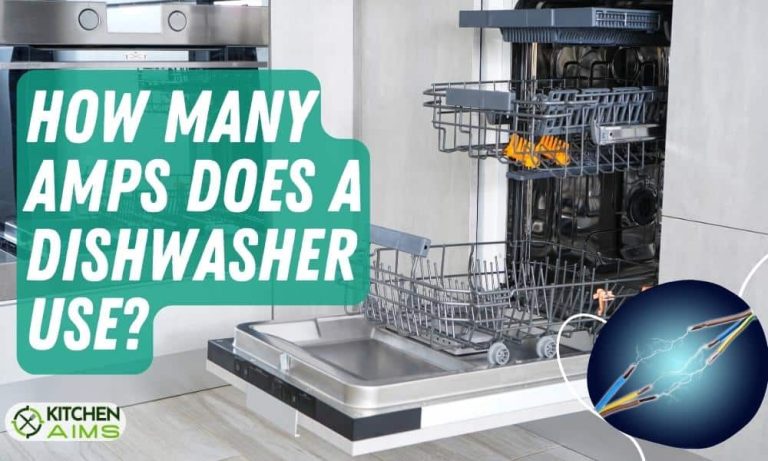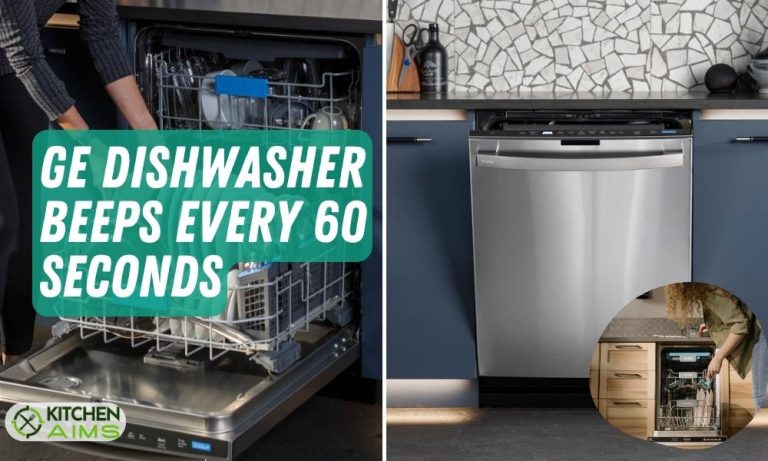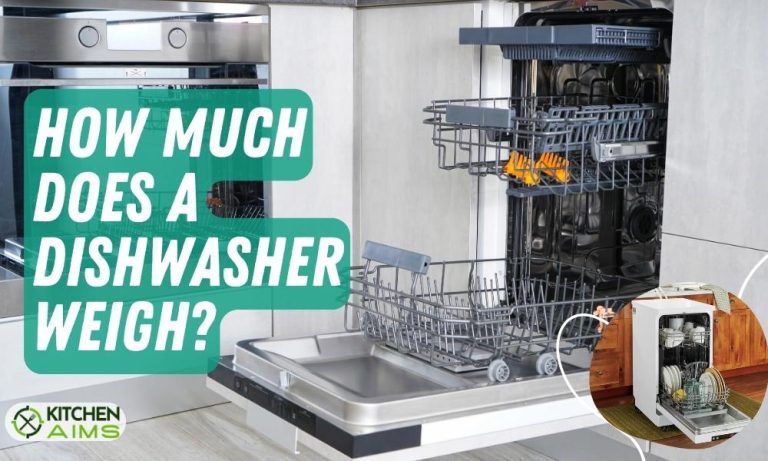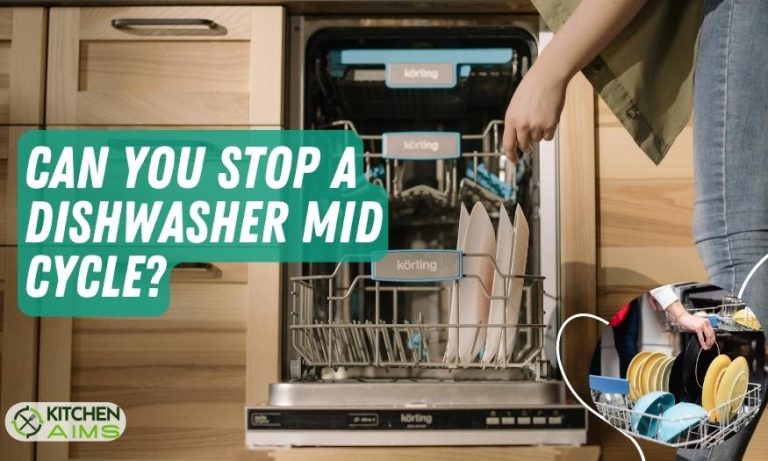Are Dishwashers Hardwired or Plugged-In? (Which One is Better?)
As dishwashers have become the common kitchen appliance in every household, they are easily available at all stores. Different dishwashers have different installation methods as some are hardwired and others are plug-in dishwashers. When this question arises, are dishwashers hardwired, then the answer is, not always.
Hardwired dishwashers are installed by professionals while electrical dishwashers with a cord and three-prong plug can be easily plugged into any socket. You can change their location from one place to other according to your preference and ease. The brand and model of the dishwashers also have a major impact in this regard.
What is the other detail of hardwired and plug-in dishwashers? Let’s find out about it.

Contents
- What is Dishwasher Hardwiring?
- Are all Dishwashers Hardwired?
- Can I convert a Hardwired Dishwasher to a Plug-in Dishwasher?
- What are the Benefits of Using a Hardwired Dishwasher?
- What are the Drawbacks of Using a Hardwired Dishwasher?
- Are Bosch Dishwashers Hardwired or Plug-in?
- What are the Pros and Cons of Plug-in Dishwashers?
- What to consider when buying a Hardwired Dishwasher?
- How can I tell whether my dishwasher is Hardwired or Plug-on?
- Frequently Asked Questions – FAQs
- Conclusion
What is Dishwasher Hardwiring?
The procedure of attaching your dishwasher to your home’s power system is known as dishwasher hardwiring. Typically, to perform this, a special circuit is built from your main switchboard to your dishwasher.
The hardwiring is the best setup as it guarantees that your dishwasher will have a separate power supply. In this way, it does not contend for current with other devices.
Moreover, you must look for a connection on the dishwasher’s top if you are unsure whether it is hardwired or not. Your dishwasher is most probably hardwired if there is no outlet. Dishwashers that are hardwired are fitted firmly and cannot be disconnected.
Are all Dishwashers Hardwired?
Dishwashers can either be plugged-in or hardwired. You will have to firmly attach the dishwasher’s cables to the electrical connections in the socket if you buy a hardwired model of the dishwasher.
Typically, the cables for the circuit are situated where you would place the dishwasher in the hardwired system. Once the machine is placed, you should not push or pull it away from the connections. Otherwise, it could be harmful to your kitchen.
Dishwashers that are plug-in won’t experience this problem. Plug-in dishwashers can be relocated and installed anywhere if there is an electric outlet around. It is simple to detach and check the dishwasher if something goes wrong.
This does not imply that hardwired dishwashers are inferior to plug-connected dishwashers. They both have benefits and drawbacks.
Can I convert a Hardwired Dishwasher to a Plug-in Dishwasher?

Yes, it is possible to convert a hardwired dishwasher into a plug-in dishwasher by using a hook and a wall connection. Let’s say you want to utilize a plug-in dishwasher that was designed to be hardwired into a kitchen with a wall outlet. If so, this procedure consists of the following three steps:
1. Set a Wall Socket
Some households have a kitchen wall outlet that is specially designed for use with a dishwasher. If it is not already equipped with a dishwasher, you must have to set it up for a dishwasher. Also, if you are building a new kitchenette, you must prepare a wall and socket for the dishwasher’s wiring.
You must keep in mind that the placement of that outlet must comply with all applicable electrical rules. Besides that, the dishwasher cable must be reachable to it.
2. Set a Circuit with Proper Wiring
Dishwashers are the powerful electronic appliances that operate continuously. So, the outlet with which they are connected should be on a separate circuit with the proper wire connection and be able to withstand the use. With that, there won’t be any issues with circuit breakers or of overheated cables.
3. Connect a Cord and Plug
The electric power system for your dishwasher needs to be changed to a cable and socket. To do that, you must have access to the dishwasher’s electrical panel. Also, you must connect it to an electrical wire with a connector.
Alternatively:
Customized kits with a high-quality cable and a three-prong connector that fits into your outlet are commonly available for this use. All you need to do is connect one of those kits to the electrical panel on your dishwasher. If you have done this properly, you have fully transformed your hardwired dishwasher into a plug-in one.
What are the Benefits of Using a Hardwired Dishwasher?
Below are some benefits of using a hardwired dishwasher:
- Hardwired dishwashers have multiple benefits, but the biggest benefit is that they won’t require connecting to a socket. This results in an overall cleaner look because no cables or sockets will be seen all around the dishwasher.
- The hardwired dishwashers are connected directly to your home’s electrical network rather than depending on a single short cable that could be quickly torn out mistakenly. So, hardwired connectors are safer than their plug-in versions.
- Additionally, hardwiring enables you to stop having several wires twisted up in your kitchen surfaces and cupboards. It lessens waste, gives a cleaner look, and offers better safety for all of the pricey gadgets inside.
What are the Drawbacks of Using a Hardwired Dishwasher?
Below I am going to describe some drawbacks of hardwired dishwashers:
- Well, hardwired dishwashers have some drawbacks as well. They will cost more than compact ones, which is a drawback. They can also be more difficult to install. So, if you don’t feel easy to install it yourself, you will have to call an expert.
- A separate circuit will be needed for hardwired dishwashers, which is another drawback. As a result, you might need to hire an electrician to set up a new connection in your house, which would require an additional cost.
- Moreover, you might need to contact an electrician once more to replace the old dishwasher and then add the new one if your dishwasher ever has to be changed.
So, is it wise to get a hardwired dishwasher? well, your personal choice will determine this. Both dishwashers have pros and downsides, so it’s required to consider your choices before choosing one. Before buying a product, you must also discuss your concerns or queries with an expert.
Are Bosch Dishwashers Hardwired or Plug-in?

A common plug is included with some of Bosch’s more recent dishwasher machines. It includes the Bosch 800 Series, in place of a hardwired connector. So, the Bosch 300 and 500 Series are hardwired but if required, they can be changed to be plug-connected.
Bosch also offers an electrical conversion kit that has everything you require to convert a hardwired connection into a plug socket for the dishwasher.
The power requirements for the 300, 500, and 800 Series are 120V and 60 Hz. Additionally, a 15-amp fuse or switch for dishwashers must be used to attach them to a specific electrical system.
See Our article for the lifespan of Bosch dishwashers
What are the Pros and Cons of Plug-in Dishwashers?
Below are some pros and cons of using a Plugged-in Dishwasher:
Pros
- Easy to move and install
- You can place it anywhere
- You can disconnect it in case of malfunctions and repairs
- Little risk of wiring issues
Cons
- Not as powerful as hardwired dishwashers
- Can make the kitchen cramped and disorganized
What to consider when buying a Hardwired Dishwasher?
There are a few aspects you have to keep in mind when selecting between a plug-in and a hardwired dishwasher. So, below are some major factors that you must consider while buying a dishwasher.
- Sound Level: The sound level is one factor you should consider. Dishwashers that are hardwired are typically quieter than those that are plug-in. So, a hardwired dishwasher will be your better decision if you are searching for one that won’t be too noisy.
- Installation Process: The installation process is a second factor that you should think about. Dishwashers that are plug-in instead of hardwired are much simpler to set up. It is essential to consult an expert if you are unclear on how to set up a hardwired dishwasher.
- Maintenance: Last but not least, you should consider cleaning and maintenance. Dishwashers that are hardwired need less cleaning than those that are portable. A hardwired dishwasher will be your best choice if you want a dishwasher that is simple to maintain.
How can I tell whether my dishwasher is Hardwired or Plug-on?

There are a few signs you can check for to determine if your dishwasher is hardwired or plug-in.
To start, look at the backside of the machine to see if a power cable is present. If there is a power cable, it is a portable or plug-in dishwasher.
Additionally, you can check for a specific power switch by opening the dishwasher. This is typically found close to the machine’s backside. If you detect one, your dishwasher is hardwired. And if there is no power connection or circuit breaker, the machine is probably portable.
Lastly, you must have a look at the dishwasher’s backside. The dishwasher is hardwired if there are no visible cables and everything looks to be covered.
The best way to proceed is to read your instruction booklet if confused. It will contain all the details you require regarding your particular dishwasher.
Frequently Asked Questions – FAQs
Conclusion
So far you might be aware of whether are dishwashers hardwired or plug-in. It is because I have discussed all the points about the hardwired and plug-in dishwashers. As both dishwashers have pros and cons, you can decide which one is your desired dishwasher by viewing the details.
Whether you choose a hardwired dishwasher or plug-in, you must consider the reliable brand according to your budget. All the dishwashers are available in different price ranges.
What else is remaining? Come up with your feedback!

Mery Webber
Mery Webber, the founder of Kitchen Aims, is a passionate home cook with extensive experience in the kitchen appliance industry. Through her blog, she aims to share her knowledge and help readers create the perfect kitchen.






